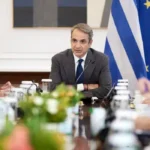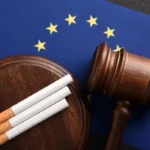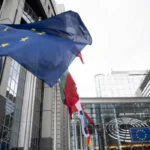Brussels, long considered a diplomatic hub, is now grappling with a crisis that has compromised the safety and privacy of the diplomatic community and foreign missions within its borders. At the heart of this crisis lies the Qatargate investigation, revealing a complex web of espionage, potential violations of parliamentary immunity, and questionable actions within the European Parliament.
The diplomatic landscape came under scrutiny when police and secret service reports, part of the Qatargate investigation, surfaced, detailing intrusive activities within the Parliament. The breach of privacy extends beyond the violation of parliamentary immunity; it involves a direct intrusion into the workings of the Parliament itself. The revelation of these documents sheds light on a disturbing narrative that demands urgent attention.
The intricacies of the story become apparent through a police report dated November 14, 2022, sent to then-investigating judge Michel Claise. The report describes a police presence within the “Spinelli” room during a subcommittee meeting on human rights, featuring a discussion on the World Cup. The meeting included notable figures such as Ali Bin Samikh Al Marri, the Minister of Labor of the State of Qatar. However, legal experts, including Giuseppe Paccione, argue that the presence of police within the Parliament is illegitimate, as international organizations and the European Parliament enjoy full diplomatic immunity.
During the meeting, the police diligently recorded the proceedings, noting the opinions of different parties involved. The report highlights a clash of opinions on encouraging Qatar to undertake reforms versus respecting workers’ rights. The unequal allocation of speaking time based on opinions raised concerns, with certain individuals receiving more time to express their views. The report delves into the movements of key figures, including Antonio Panzeri, a central figure in the Qatargate scandal, and Francesco Giorgi, his former parliamentary assistant.
The police report raises serious allegations, including criminal organization and public corruption, involving not only Panzeri and Giorgi but also a sitting MEP, Maria Arena. This revelation prompts questions about potential violations of parliamentary prerogatives, leading to a year-long delay before the prosecutor’s office considers requesting the revocation of immunity.
Eva Kaili, former vice-president of the European Parliament, has taken legal action against Parliament for the violation of her parliamentary immunity. She claims to have been monitored by secret services while participating in the Pega commission, investigating the existence of illegal software monitoring the activities of MEPs and EU citizens. Police reports, including detailed documents on immunity rules, have added to the complexity of the situation, involving additional MEPs such as Pietro Bartolo.
The suspicion of a possible violation of parliamentary immunity intensifies, especially in a report indicating collaboration between Belgian secret services and “other European secret services.” The list of suspects expands, encompassing names like Moretti and Brando Benifei. The report includes photos and details of activities in Parliament, further raising concerns about the breach of privacy.
As the crisis unfolds, the actions of the police are under scrutiny, with a clear “action plan” to intercept certain individuals’ phone numbers. Questions arise about the legality of investigative activities carried out before the revocation of immunity, potentially constituting acts in violation of the law. The prosecutor’s office defends its stance, emphasizing that investigative measures only concern subjects not covered by immunity.
Brussels faces a challenging period as the safety of foreign diplomats and international organizations is jeopardized by a crisis involving espionage, potential breaches of parliamentary immunity, and questionable investigative practices within the European Parliament. The unfolding events demand a thorough investigation and a commitment to restoring trust in the diplomatic sphere within the heart of the European Union.






